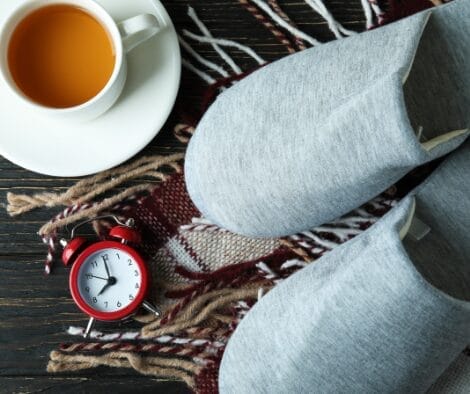Unlocking the Secrets to Sound Sleep: Designing Your Sleep Sanctuary and Boosting Restfulness through Fitness Practices
Quality sleep is a cornerstone of overall well-being, influencing physical health, mental clarity, and emotional resilience. Creating the ideal sleep environment is a powerful step towards ensuring restful and rejuvenating nights. This blog will delve into practical advice on sleep hygiene while highlighting the significant role that fitness plays in optimizing sleep quality.

Creating the Ideal Sleep Environment:
Darkness and Light Control:
Begin by transforming your bedroom into a haven of darkness. Blackout curtains can effectively shield your space from external light sources, while an eye mask provides an additional layer of darkness, promoting the production of melatonin, the sleep-inducing hormone.
Comfortable Bedding:
Your mattress and pillows are crucial contributors to a comfortable sleep environment. Invest in a mattress that provides adequate support for your body, and select pillows based on your preferred sleeping position. Comfortable bedding not only prevents discomfort but also enhances relaxation.

Optimal Room Temperature:
Maintaining an optimal room temperature is key to a good night’s sleep. Keep your bedroom cool, ideally between 60-67 degrees Fahrenheit (15-20 degrees Celsius). This temperature range facilitates the regulation of your body’s internal thermostat, ensuring a more comfortable and restful sleep.
Minimize Noise:
Noise disruptions can significantly impact sleep quality. Consider using earplugs, a white noise machine, or soothing music to create a serene auditory atmosphere. A quiet environment or consistent background noise helps induce a state of relaxation conducive to deep sleep.

The Role of Fitness in Sleep:
Regular Exercise Routine:
Engaging in a regular exercise routine has been linked to improved sleep quality. Aim for at least 150 minutes of moderate-intensity exercise per week. Activities such as walking, jogging, or yoga contribute to regulating your sleep-wake cycle, promoting better overall sleep.
Timing Matters:
While exercise is beneficial, the timing of your workouts can impact sleep. Complete vigorous exercises at least a few hours before bedtime to allow your body temperature to gradually cool down. This signals to your body that it’s time to wind down for sleep.
Mind-Body Connection:
Practices like yoga and meditation can promote relaxation and reduce stress, contributing to better sleep. Incorporating mindfulness techniques, especially in the evening, calms your mind and prepares it for rest.

Practical Advice on Sleep Hygiene:
Establish a Consistent Sleep Schedule:
Consistency is key to regulating your body’s internal clock. Go to bed and wake up at the same time every day, even on weekends. This helps your body establish a rhythm, making it easier to fall asleep and wake up naturally.
Limit Screen Time Before Bed:
Electronic devices emit blue light, which can interfere with melatonin production. Limit screen time at least an hour before bedtime and consider using devices with a “night mode” feature to reduce blue light exposure.
Watch Your Diet:
Avoid heavy meals, caffeine, and alcohol close to bedtime. These substances can disrupt sleep patterns and affect the overall quality of your rest.
Create a Relaxing Bedtime Routine:
Establish a calming pre-sleep routine to signal to your body that it’s time to wind down. This could include activities such as reading a book, taking a warm bath, or practicing relaxation exercises.
Achieving restful and rejuvenating sleep involves a holistic approach, combining the creation of an ideal sleep environment with the integration of fitness into your lifestyle. Prioritizing darkness, comfort, and temperature, while minimizing disruptions, sets the stage for a good night’s sleep. Regular exercise and mindful practices contribute to overall well-being, positively impacting the quality of your sleep. Remember, by embracing a comprehensive approach to sleep hygiene, you increase your chances of waking up feeling refreshed and ready to tackle the day ahead. Sweet dreams!

Are you ready to enhance your sleep quality and fitness levels? Take the first step toward a healthier lifestyle with these actionable tips:
- Transform Your Sleep Space: Apply the practical advice shared in this blog to create a soothing sleep environment. Adjust your bedroom, upgrade your bedding, and prioritize darkness for optimal rest.
- Embark on a Fitness Adventure: Explore activities that resonate with you, whether it’s a morning jog, evening yoga, or weekend hikes. Discover the joy of movement as you prioritize your physical well-being.
- Share Your Progress: Join our community of like-minded individuals by sharing your sleep and fitness journey on social media using #SleepFitnessJourney. Celebrate achievements, inspire others, and stay motivated on the path to a healthier you.
- Set Attainable Goals: Define realistic sleep and fitness goals, breaking them down into manageable steps. Consistent progress leads to lasting positive changes. You’ve got this!
- Explore Further Resources: Deepen your knowledge with additional articles, books, or podcasts on sleep and fitness. Empower yourself with valuable insights to optimize your well-being.
Ready for one-on-one guidance? Our expert coaches are here to assist you in your journey. Consider reaching out for:
–Fitness Coaching: Tailored programs to suit your preferences and goals.
-Nutrition Coaching: Guidance on maintaining a balanced diet for overall health.
-Sleep Ideas: Insights and strategies to improve your sleep quality.
Connect with us today to explore how coaching and personalized support can elevate your well-being. Your journey to better sleep and fitness begins now! Click below to get started today!

